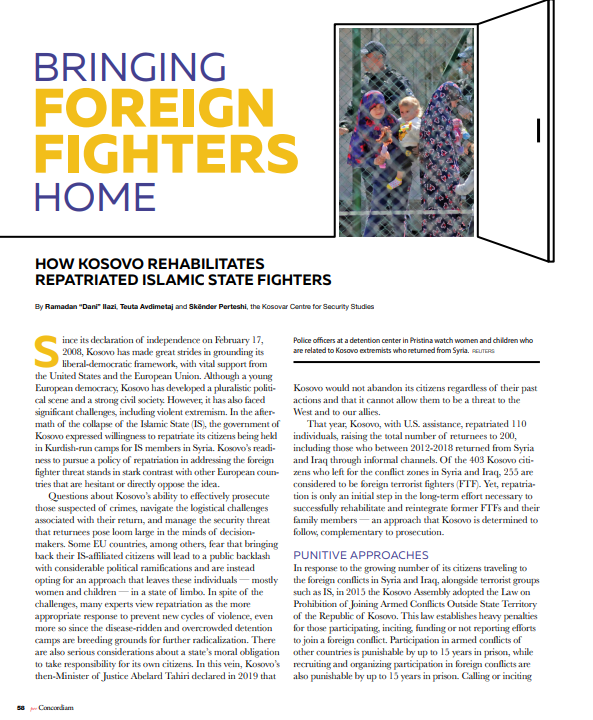1/04/2021

George C. Marshall European Center for Security Studies per Concordiam: Journal of European Security Defense Issues 11, No. 2, 2021: 58-61.
George C. Marshall European Center for Security Studies per Concordiam: Journal of European Security Defense Issues 11, No. 2, 2021: 58-61.
Dr. Ramadan Ilazi, Teuta Avdimetaj, Skënder Perteshi
“Since its declaration of independence on February 17, 2008, Kosovo has made great strides in grounding its liberal-democratic framework, with vital support from the United States and the European Union. Although a young European democracy, Kosovo has developed a pluralistic political scene and a strong civil society. However, it has also faced significant challenges, including violent extremism. In the aftermath of the collapse of the Islamic State (IS), the government of Kosovo expressed willingness to repatriate its citizens being held in Kurdish-run camps for IS members in Syria. Kosovo’s readiness to pursue a policy of repatriation in addressing the foreign fighter threat stands in stark contrast with other European countries that are hesitant or directly oppose the idea.
Questions about Kosovo’s ability to effectively prosecute those suspected of crimes, navigate the logistical challenges associated with their return, and manage the security threat that returnees pose loom large in the minds of decision makers. Some EU countries, among others, fear that bringing back their IS-affiliated citizens will lead to a public backlash with considerable political ramifications and are instead opting for an approach that leaves these individuals — mostly women and children — in a state of limbo…”